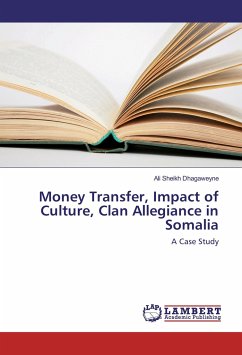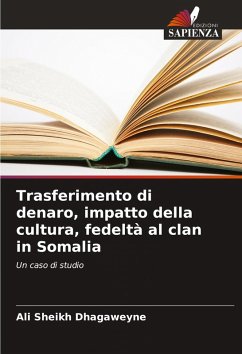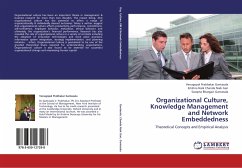
Money Transfer, Impact of Culture, Clan Allegiance in Somalia
A Case Study
Versandkostenfrei!
Versandfertig in 6-10 Tagen
24,99 €
inkl. MwSt.

PAYBACK Punkte
12 °P sammeln!
Nearly 25 years of lack of functional state, Somalia maintained both multilateral and localized business connection and protection. The chief source of protection squarely laid on the power of clan, in that in the Somalis context, everyone is under the surveillance of clan, and serving clan interest is a matter of need not privilege. What is more, much of the business in Somalia survived in terms of continuity through cultural allegiance, a classical example is the informal money transfer or money remittance into the country. Each major clan of Somalia has a traditional money remittance instit...
Nearly 25 years of lack of functional state, Somalia maintained both multilateral and localized business connection and protection. The chief source of protection squarely laid on the power of clan, in that in the Somalis context, everyone is under the surveillance of clan, and serving clan interest is a matter of need not privilege. What is more, much of the business in Somalia survived in terms of continuity through cultural allegiance, a classical example is the informal money transfer or money remittance into the country. Each major clan of Somalia has a traditional money remittance institution in which customer attraction is mainly on the basis of clan identity. This book demonstrates a handy example on how culture and clan loyalty works in Somalia business.












